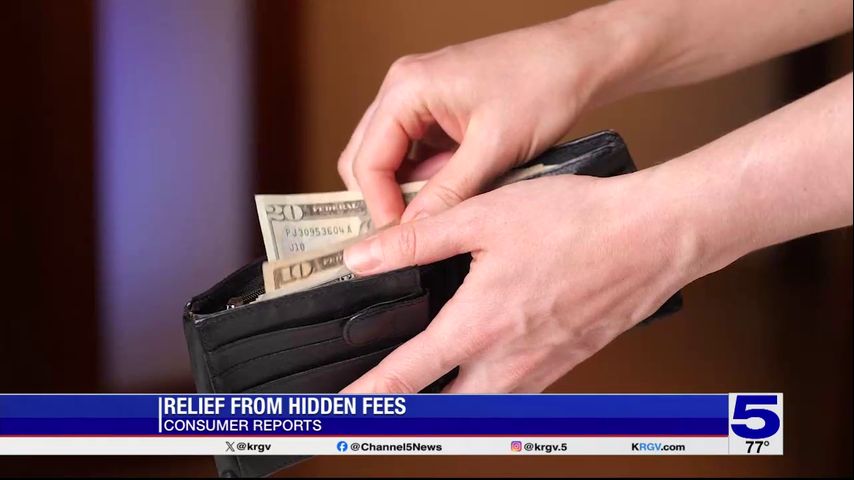Consumer Reports: Relief from hidden fees
Junk fees have become a costly part of everyday life, popping up on hotel bookings, food orders, payment apps, and more. A new federal rule targets some of the worst offenders, but many hidden charges remain legal. Consumer Reports breaks down what this means for your wallet and how to avoid them.
Travel agent Shay Martin recently told her social media followers about the $600 resort fee that caught her by surprise on her honeymoon a few years ago. She said, “I just wanted to share that and let people know that it's something to look out for. And I did call out that it has started to change.”
That change is thanks to a new FTC rule that is now in effect. It requires full price transparency for hotels, short-term lodging, and live-event tickets, so you’ll know the total price before booking, making it easier for consumers to avoid surprises.
Americans are sick and tired of getting hit with hidden fees that jack up prices and take a big bite out of their wallets. This is a big step in the right direction, but much more needs to be done.
That’s because the FTC rule only addresses a small piece of a much bigger problem. Hidden fees are still everywhere. Consumer Reports estimates that the average family of four spends about $3,200 a year on junk fees. These added costs hit hardest for families already struggling to get by, especially in low-income communities.
Consumer Reports has some tips to avoid sneaky fees. For example, you can sometimes avoid extra charges with flights by booking directly through the airline or a trusted travel agent and using the airline’s app to check in.
If you're renting a car, you might be able to bring your own toll transponder to avoid extra charges. Just check that it works in your destination and that your state allows you to use it in a rental.
Food delivery apps are another place where hidden fees sneak in. To potentially avoid them, order directly from the restaurant, pick it up yourself, and pay in cash. Some restaurants add a two to three percent fee when you pay with a credit card.
And when banking, switching to a low-fee or online bank and using in-network ATMs can save you from unnecessary charges.
With more consumers paying bills automatically, those extra charges can go unnoticed. That’s why it’s important to check your statements regularly.
Smart moves to keep more money in your wallet.




